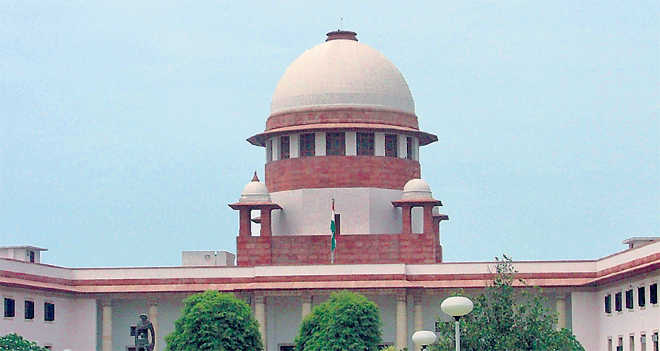
Beant Singh Bedi
Retired District & Sessions Judge
Print media was afire on September 30, 2017, proclaiming that a complaint of rape had been lodged by a government employee against Sucha Singh Langah, a prominent leader of a political party and a member of the SGPC. In her complaint made to the SSP, Gurdaspur, the victim had alleged that Langah had raped her several times between 2009 and May 27, 2017. The victim had also given a video clipping made by her along with her complaint. This video became viral on social media. On October 5, 2017, the Akal Takht decided to excommunicate Langah. Moral sense of the public was outraged. However, an anti-climax was soon to come. A headline in The Tribune of March 1, 2018, reported that 'Langah 'rape victim' turns hostile ….' The Times of India reported that 'Woman denies making rape allegations against Langah'. The Hindustan Times in a similar vein reported 'Victim backtracked in rape case….' These developments between September 29, 2017 and March 1, 2018, have again exposed the underbelly of our criminal justice delivery system. Classic was the Best Bakery case, though in the SLP, the Supreme Court was able to salvage justice.
Questions raised by Langah case
This is not intended to influence the outcome of the case. All the same, academically, the Langah case throws up a number of questions:
- Whether a police officer can with impunity implicate a person in a false criminal case?
- Whether a genuine prosecution witness can afford with impunity to turn hostile?
- What legal action, if any, is permissible in point above? And whether such action is taken in all cases?
- Finally, if the version of (alleged) hostile witness is correct, what legal action is permissible against the investigating officer(s) and whether this action is taken in all cases?
What if the witness turns hostile?
As Bentham said, witnesses are the eyes and ears of justice. What if the witnesses turn hostile? In the statute books, you may find the answer to the above questions. Section 154 Evidence Act authorises the court to permit the prosecution to cross-examine a hostile witness with a view to cornering him to elicit the truth. Then there are provisions in the Indian Penal Code for perjury to be used against a witness who has turned hostile. The police officer who has falsely implicated the accused in a criminal case may also be prosecuted. But the trial courts are too awfully overburdened to indulge in taking up and following the legal action against the hostile witnesses or the delinquent investigating officers. There may be rare exceptions which only prove the rule. As a result, justice suffers.
Despite tall claims, the government has made no serious efforts to reform law on this dark segment of the criminal justice delivery system, though suggestions have been made from time to time to switch over to the continental system in the trial of criminal cases.
Anglo-Saxon law vs continental system
In our system of trial, the role of the presiding judge is almost passive. Generally, continental methods emphasise more strongly the value of utility. The state takes a more active part in the exploration of truth in criminal matters. Anglo-Saxon law (which we have inherited), on the other hand, emphasises more elaborate security and the accused has more elaborate safeguards, which not infrequently lead to the acquittal of obviously guilty persons. In the continental system, there is also an institution known as juge d'instruction in France and as Untersuchungsrichter in Germany.
On the motion, either of the prosecutor or the accused, a judicial inquiry may be held in major cases in order to clarify the facts. In certain cases, it is compulsory. Such safeguards ensure that the guilty does not escape unpunished. In the continental system, once the charge is framed, the onus shifts to the accused to prove his innocence, while in our system of trial, the presumptions are in favour of the accused. Jurists acknowledge that the criminal trial in the continental system is not less fair than its Anglo-Saxon counterpart.
On the whole, the continental system goes deeper in search of truth, making it very difficult for the accused to escape the consequences of the offence committed by him. While in our criminal trial system, it is much easier even for a guilty person to escape unpunished. This explains the low rate of conviction in Indian courts. On the whole, the continental criminal trial system is more justice-friendly and pragmatic. It is, perhaps, the appropriate stage for the nation to consider whether to switch over to the continental system of criminal trial so as to upgrade the quality of criminal justice delivery system.



























